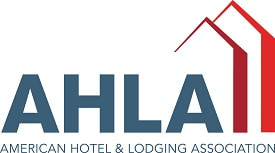Ask the Experts: ADA Accessible Websites
|

Q: I have read about my website needing to be ADA accessible. What does that mean?
A: What a fantastic and timely question! Generally, Title III of the Americans with Disabilities Act (ADA) prohibits discrimination on the basis of disability in ‘places of public accommodations’ (I.e., places that are generally open to the public, such as restaurants, movie theaters, schools, etc.). When the ADA was passed in 1990, it did not address whether websites and mobile applications are considered ‘places of public accommodation’ because they did not exist. As society increases its reliance on websites, mobile phones, and mobile apps to connect the public with business services, it is unclear whether places of public accommodations must also have ADA-accessible websites and apps.
First, the concept of having an ADA-compliant website is still not clear, as explained below, but essentially, if the ADA applies to your website, your website must provide full and equal access, effective communication, and/or meaningful access to everyone. On a very basic level, having an ADA compliant website means that your website is accessible for those who have hearing and sight disabilities, among others.
A: What a fantastic and timely question! Generally, Title III of the Americans with Disabilities Act (ADA) prohibits discrimination on the basis of disability in ‘places of public accommodations’ (I.e., places that are generally open to the public, such as restaurants, movie theaters, schools, etc.). When the ADA was passed in 1990, it did not address whether websites and mobile applications are considered ‘places of public accommodation’ because they did not exist. As society increases its reliance on websites, mobile phones, and mobile apps to connect the public with business services, it is unclear whether places of public accommodations must also have ADA-accessible websites and apps.
First, the concept of having an ADA-compliant website is still not clear, as explained below, but essentially, if the ADA applies to your website, your website must provide full and equal access, effective communication, and/or meaningful access to everyone. On a very basic level, having an ADA compliant website means that your website is accessible for those who have hearing and sight disabilities, among others.

In January, 2019, the Ninth Circuit U.S. Court of Appeals ruled in a case against a pizza restaurant that failure to have an ADA-accessible website violated the ADA because individuals who were blind or had limited vision were unable to use the website to order pizzas online with the use of screen-reading software. The restaurant sought to appeal the ruling to the Supreme Court, but it was denied.
Recently, on April 7, 2021, the Eleventh Circuit U.S. Court of Appeals ruled in Gil v. Winn-Dixie that a Winn-Dixie Pharmacy’s website, which was not ADA-accessible, did not violate the ADA. This ruling contradicts the Ninth Circuit’s Ruling. The Eleventh Circuit created a new test for determining whether the website is required to be ADA accessible. Does a website’s inaccessibility create a tangible barrier to the physical location of a public accommodation? The Eleventh Circuit reasoned that Winn-Dixie’s website did not completely deny Plaintiff any service, as the inaccessible website only provided information and the ability to submit orders for in-store pickup. All purchases had to be made in-store, which was ADA-compliant; so the Court was not persuaded that the Winn-Dixie website needed to be ADA-compliant. The Plaintiff argued that the website’s inaccessibility still created hardship and denied equal treatment, which the ADA was created to prevent. If appealed, the U.S. Supreme Court may clarify the ruling, given the clear split in rulings, public support both sides are receiving, and the ambiguity and confusion that continues to surround the issue.
In the meantime, Congress has taken steps to clear up the issue. A bipartisan group of Representatives introduced H.R. 1100, which if passed, would:
Please be careful. There are folks searching for websites that are not ADA compliant under the Ninth Circuit pizza restaurant case and sending demand letters for damages related to the ADA non-compliance. Additional questions on ADA Compliance? Check out the MRLA Legal Center for resources.
Recently, on April 7, 2021, the Eleventh Circuit U.S. Court of Appeals ruled in Gil v. Winn-Dixie that a Winn-Dixie Pharmacy’s website, which was not ADA-accessible, did not violate the ADA. This ruling contradicts the Ninth Circuit’s Ruling. The Eleventh Circuit created a new test for determining whether the website is required to be ADA accessible. Does a website’s inaccessibility create a tangible barrier to the physical location of a public accommodation? The Eleventh Circuit reasoned that Winn-Dixie’s website did not completely deny Plaintiff any service, as the inaccessible website only provided information and the ability to submit orders for in-store pickup. All purchases had to be made in-store, which was ADA-compliant; so the Court was not persuaded that the Winn-Dixie website needed to be ADA-compliant. The Plaintiff argued that the website’s inaccessibility still created hardship and denied equal treatment, which the ADA was created to prevent. If appealed, the U.S. Supreme Court may clarify the ruling, given the clear split in rulings, public support both sides are receiving, and the ambiguity and confusion that continues to surround the issue.
In the meantime, Congress has taken steps to clear up the issue. A bipartisan group of Representatives introduced H.R. 1100, which if passed, would:
- Amend the ADA to add a new Title VI, which would expressly include websites and mobile applications under the ADA’s protections,
- Establish the ‘Access Board,’ which will establish the digital accessibility compliance standards, and
- Establish mandatory administrative remedies to stem the tide of lawsuits.
Please be careful. There are folks searching for websites that are not ADA compliant under the Ninth Circuit pizza restaurant case and sending demand letters for damages related to the ADA non-compliance. Additional questions on ADA Compliance? Check out the MRLA Legal Center for resources.




